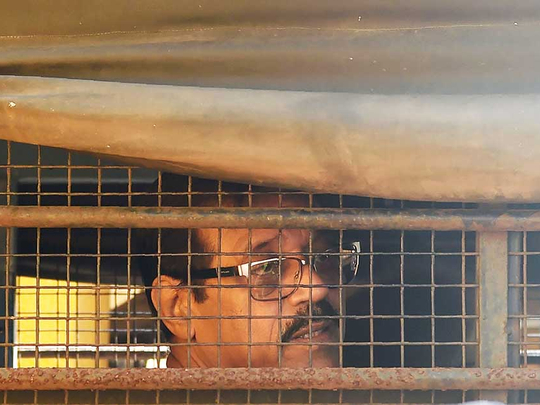
Mumbai: Twenty-four years after Mumbai faced 13 serial bomb blasts that claimed 257 lives and injured over 700 people, a special Terrorist and Disruptive Activities (Prevention) Act (TADA) court Friday held six people guilty of criminal conspiracy, including key masterminds Mustafa Dossa and extradited gangster Abu Salem.
Along with Dossa and Salem, the court also found the other key accused Firoz Khan, Karimullah Khan, Riyaz Siddiqui and Taher Merchant guilty of conspiracy charges while Abdul Qayyum was acquitted of all charges. According to the court, the prosecution failed to prove conspiracy charges against Siddiqui. The court ordered his release on personal bond.
The court has set the next hearing date on June 19, Monday, to decide the date for argument on the quantum of sentence.
The under-trials, who were arrested between 2003 and 2010, including Dossa, Salem, Khan, Merchant, Siddiqui and Qayyum were tried separately by the court.
Salem, who was extradited from Portugal in 2005, was charged with supplying arms and ammunition, including the lethal RDX which was used in the blasts while Dossa was convicted on charges of conspiracy and murder under various sections of the Indian Penal Code (IPC) besides offences under the TADA Act, the Arms Act and Explosives Act.
Salem was found guilty of criminal conspiracy to commit terror acts as he had sent nine AK-56 rifles and hand grenades to Mumbai in false cavities of a van from Bharuch, Gujarat, ahead of the blasts and even handed over some at the residence of actor Sanjay Dutt in January 1993.
In spite of facing extremely serious charges, Salem, who could be given the death sentence under the TADA Act, cannot be awarded the death penalty as it is against the guarantees in the extradition treaty signed between India and Portugal in 2002.
As for criminal charges against Dossa, he attended and participated in conspiracy meetings at the residence of absconding accused Mohammed Dossa along with Dawood Ibrahim and Tiger Memon, the main masterminds behind the blasts.
The blasts took place on the afternoon of March 12, 1993 at 13 different locations in quick succession including the iconic Air India building, Bombay Stock Exchange, near the passport office in Worli, and hotels Juhu Centaur and Sea Rock, which were then five star hotels.
This was for the first time that the deadly RDX was used in the first of the terror attacks in the country, with Mumbai facing multiple such attacks in subsequent bomb blasts. Special Central Bureau of Investigation counsel Deepak Salvi had told the court earlier that “this was the first terrorist attack in the world where RDX was used on such a large scale after the Second World War.”
The verdict of the first trial held between 1995-2006 was pronounced on September 12, 2006 when 100 were convicted, death sentences awarded to 12, life sentences to 20, while three were acquitted.
On March 21, 2013, the Supreme Court upheld the death sentence of Yakub Memon, brother of Tiger Memon, and commuted the death sentence of 10 convicts to life. Yakub was hanged on July 30, 2015 in a central prison in Nagpur after an apex court bench rejected his final attempt to postpone his execution.












